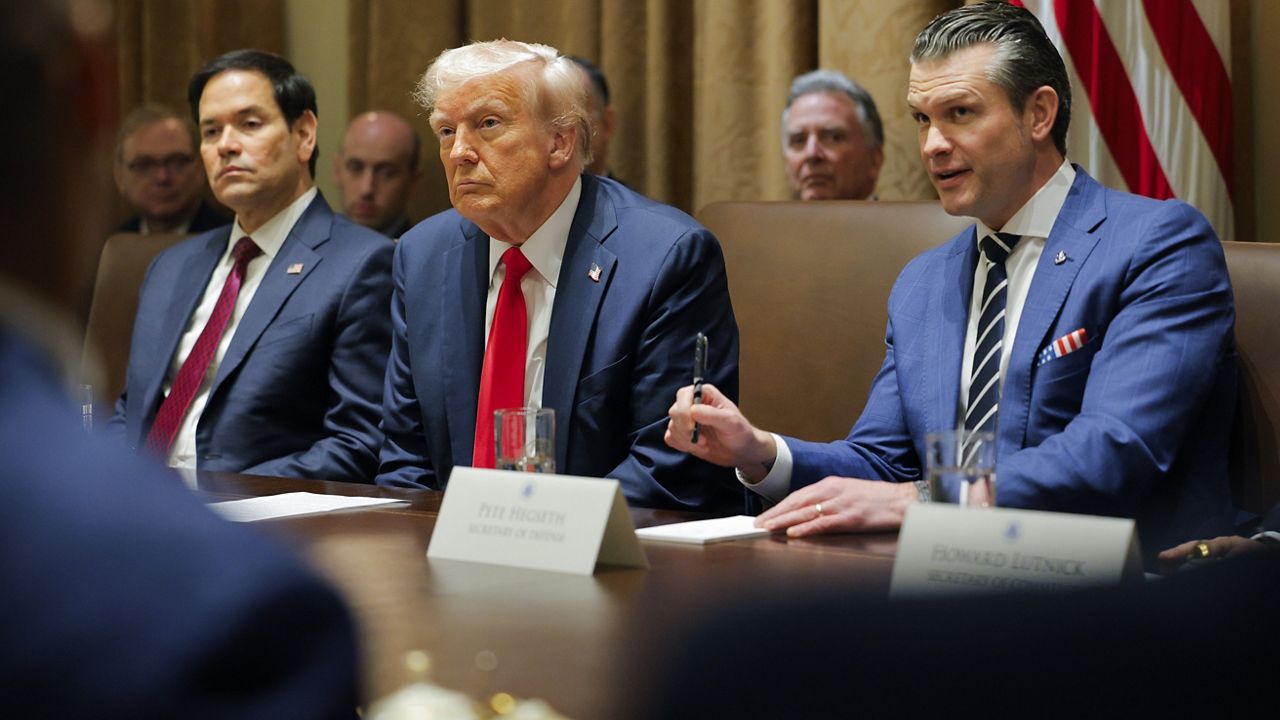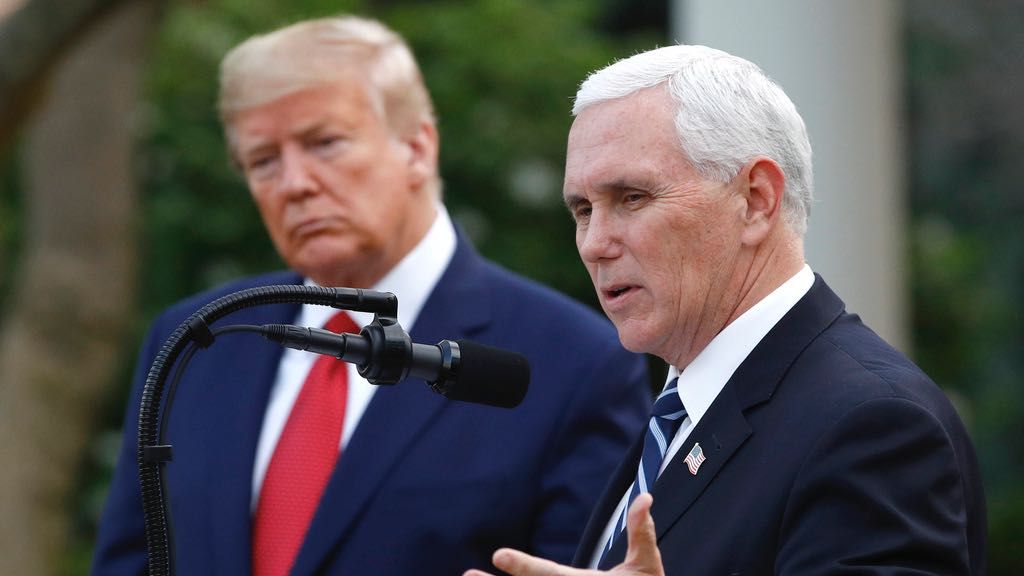The battle over the legislative filibuster, the 60-vote threshold by which debate can be brought to a close in the Senate, is heating up as progressive Democrats call on leadership to abolish the rule.
Senate Minority Leader Mitch McConnell (R-KY) warned in a floor speech Tuesday that Democrats changing filibuster rules — using the so-called “nuclear option” to eliminate the 60-vote threshold and require all bills be passed by a simple majority — would lead to a “completely scorched earth Senate.”
“Let me say this very clearly for all 99 of my colleagues,” he said. “Nobody serving in this chamber can even begin — can even begin — to imagine what a completely scorched earth Senate would look like. None of us have served one minute in a Senate that was completely drained of comity, and this is an institution that requires unanimous consent to turn the lights on before noon.”
McConnell utilized the “nuclear option” in 2017 to eliminate the 60-vote threshold for Supreme Court nominees, clearing the way for former President Donald Trump’s first nominee to the high court, Neil Gorsuch.
“This chaos would not open up an express lane to liberal change,” the Kentucky Republican continued. “It would not open up an express lane for the Biden presidency to speed into the history books. The Senate would be more like a hundred-car pile-up. Nothing moving.”
But Sen. Dick Durbin (D-IL), the No. 2 Democrat in the Senate, said of McConnell’s threat to shut down the Senate that “he has already done that. He’s proven he can do it, and he will do it again.”
On Monday, Durbin slammed the filibuster in a floor speech, calling it a “mockery of American democracy” and said the modern filibuster has “become the death grip of democracy.”
“The filibuster is still being misused by some senators to block legislation urgently needed and supported by a strong majority of the American people,” he added.
"It's time to change the Senate rules,” Durbin said. “Stop holding this Senate hostage. We cannot allow misuse of arcane rules to block the will of the American people. I urge my colleagues to defend democracy by making the changes needed.”
This is a stark change from Durbin’s previous comments, including as recently as 2018 when he said that changing the filibuster “would be the end of the Senate as it was originally devised” — Durbin told the Huffington Post’s Igor Bobic that “Senator McConnell taught me that I was wrong. He managed to use and abuse the filibuster so many times and stopped the Senate in its track.”
McConnell threatened that if Republicans took back the Senate, “we wouldn't just erase every liberal change that hurt the country – we'd strengthen America with all kinds of conservative policies with zero, zero input from the other side,” citing policies such as defunding Planned Parenthood and sanctuary cities, increase abortion restrictions, and concealed carry laws, among others.
“This pendulum would swing both ways, and it would swing hard,” McConnell warned, echoing his 2013 warning when then-Majority Leader Dick Durbin (D-NV) used the nuclear option to prevent Republicans from filibustering non-Supreme Court judicial nominations — “You’ll regret this, and you may regret this a lot sooner than you think.”
“Everything that Democratic Senates did to Presidents Bush and Trump, everything the Republican Senate did to President Obama, would be child’s play compared to the disaster that Democrats would create for their own priorities if – if – they break the Senate,” the Minority Leader said. “The most mundane task of the Biden presidency would actually be harder – harder, not easier – for Democrats in a post-nuclear Senate.” (It’s worth noting that Democrats never controlled the Senate under Trump’s presidency.)
Critics of the filibuster say that it is standing in the way of enacting key legislative priorities of the Biden administration, including key voting rights legislation, the John Lewis Voting Rights Advancement Act and H.R. 1, the For the People Act, as well as laws like the Equality Act, which expands LGBTQ protections under the law.
H.R. 1, which passed in the House earlier this month, would establish Election Day as a federal holiday, allow for automatic voter registration, widespread early voting, and voting-by-mail, and reform campaign finance laws – and faces nearly impossible odds for passage in a 50-50 Senate.
McConnell himself called the bill an effort by Democrats to “steamroll states and localities to try to prevent themselves from losing even more seats next time;” the Biden White House called it “landmark legislation” that is “urgently needed” to “safeguard the integrity of our elections.”
Reforming the filibuster would be an uphill battle. For one, it would require the support of moderate Sens. Joe Manchin (D-WV) and Kyrsten Sinema (D-AZ), who have previously said they oppose changing the filibuster rules.
Manchin told Axios’ Alayna Treene Tuesday that "I'm just in the same place I've always been on the filibuster. That basically, I sit in Robert C. Byrd's seat. There's not a person that defended the Senate more than he did.”
"You cannot get rid of the filibuster unless your intention is to destroy the Senate,” he added.
It would also require the support of President Joe Biden, himself a Senate stalwart, who expressed an opposition to abolishing the filibuster.
White House press secretary Jen Psaki told reporters on Air Force One traveling with the president on his "Help is Here" tour appearance in Pennsylvania Tuesday that regarding the filibuster, “the President's preference … is not to make changes.”
However, in an interview with ABC News released Tuesday, Biden said he supports changing the filibuster rule, potentially delivering progressives a major win.
"Aren't you going to have to choose between preserving the filibuster, and advancing your agenda?" Stephanopoulos asked the president.
"Yes, but here's the choice: I don't think that you have to eliminate the filibuster, you have to do it what it used to be when I first got to the Senate back in the old days," Biden replied. "You had to stand up and command the floor, you had to keep talking."
Biden said he is for bringing back the talking filibuster, which would require Senators actually stand on the floor and speak the entire time they wish to extend debate.
"That's what it was supposed to be," Biden said. "It's getting to the point where, you know, democracy is having a hard time functioning."
But a number of prominent progressive lawmakers — from Reps. Cori Bush (D-MO), Ro Khanna (D-CA), and Eric Swalwell (D-CA) to Sens. Elizabeth Warren (D-MA) and Ed Markey (D-MA) — are ramping up pressure on Democratic leadership to consider changes to the Senate rule.
“We’re headed for a showdown between the John Lewis Voting Rights Advancement Act and the filibuster — a relic of Jim Crow,” Rep. Joaquin Castro (D-TX) told Politico, adding: “Let’s be clear-eyed with stakes: If President Biden and Congress fail to safeguard our elections now, I fear for the future of our democracy.”
“I’m not going to say that you must get rid of the filibuster [entirely],” House Majority Whip Jim Clyburn (D-SC) told The Guardian recently. I would say you would do well to develop a Manchin-Sinema rule on getting around the filibuster as it relates to race and civil rights.”
Former Georgia gubernatorial candidate Stacey Abrams told CNN Sunday that she doesn’t believe that it is “necessary to wholly eliminate the filibuster” to pass legislation to protect the right to vote, but noted that “just as we have seen an exemption carved into the filibuster rules for judicial appointments, for Cabinet appointments and for budget reconciliation, the protection for our democracy, especially in the wake of the insurrection on January 6 and it's continued ripples throughout our state legislatures, it demands that the entire US Senate acknowledge that protection of democracy is so fundamental that it should be exempt from the filibuster rules.”








